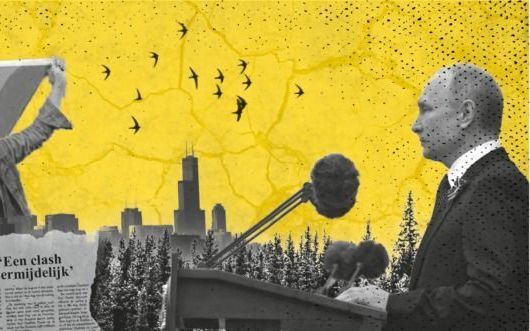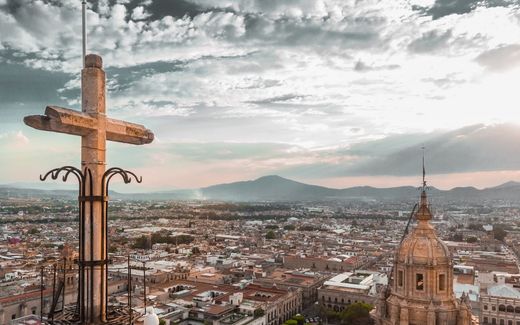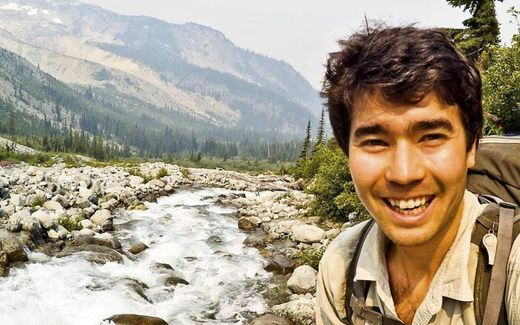Ukrainian War: a clash with the Russians or a fight with Putin?
27-06-2022
Opinion
Jakob Hoekman, RD

Photo RD
Opinion
“A clash with neo-Nazism is inevitable”, the Russian President said about Ukraine during his speech in May. That statement of Putin reminds us of an old book: “The Clash of Civilisations and the Remaking of the World Order”. That book has become a tipping point in the political history because of its thrilling prediction.
After the Cold War, not ideology, but culture would become the decisive factor in all conflicts in the world. Civilisations with different cultures and religions who do not (want to) understand each other, will be the cause of devastating wars, the author, Samuel Huntington, predicted thirty years ago.
The late American political scientist (who passed away in 2008), divided the world in several cultural regions, of which some are quite large. A few examples: First, there is the Western cultural block, consisting of the USA, Canada, a large part of Europe, Australia and New Zealand. In addition, there is an Islamic block, which stretches from Morrocco to Indonesia. Within the Islamic block, the Hinduist block is located. The latter mainly consists of India. Furthermore, there is the Orthodox world, of which Russia is the core.
Huntington predicted that the border areas of the different blocks would be the regions in which tough battles would take place.
After the publication of his book, Huntington was criticised harshly by one of his most talented former students, political scientist Francis Fukuyama. Fukuyama had argued, just before the lecture, that the ideological development of humanity had been ‘finished’ since the end of the Cold War.
There could only be one winner, the western liberal democracy. He called that form of government even the “last form of human government.” The “end of history” was achieved according to him; the last task that remained was spreading the western liberal democracy over the rest of the world. Cultural wars would not be necessary, because conflicts would only arise between proponents and opponents of liberal democracy as form of government.
But then 2001 started with its Islamic terrorist attacks and tensions between the East and the West. Not much after, in 2008, the financial crisis threatened the European unity between the Protestant North and the Catholic and Orthodox South. And finally, 2022 started. That year brought a European war with the Russian or the Western culture as bet.
The gap between “us” and “them” turned out to be larger than ever, and the notion of the “end of history” seemed to be questionable at the least. In the past twenty years there have been enough candidates offering an alternative for the western liberal democracy.
Was Samuel Huntington then right after all? The boring answer to such questions is almost always: partly. Yes, there are tough conflicts at the borders of Huntington's civilisations. For example, at the border between the Muslim world and Sub-Saharan Africa. The continual massacres in Nigeria are the painful evidence for that. Another conflict takes place between India and Pakistan, at the border between the Islamic and Hinduist civilisation.
And then there is Eastern Europe. “Ukraine is a divided country with two different cultures. The border between the civilisations of the West and the Orthodox world has been cutting through the heart of the country for ages already”, Huntington wrote in the 90s.
Yet, the large cultural fault lines in the world are no guarantee for war. Between the West and the South American civilisation there has not been a large conflict, for example. And that is true for many more fault lines defined by Huntington.
Instead, the largest wars of the past decennia took place in countries which belonged to one civilisation defined by Huntington. That is especially true for the Islamic civilisation.
Syria, Yemen, Libya: all these conflicts were about the form of government, rather than about a cultural gap. You could even see the Arabic Spring as one big revolt against autocratic leaders. In that sense, Fukuyama has been right as well: today, many conflicts are more about the form of government than about a deep cultural or religious divide.
There are several arguments to assert that this is applicable to Ukraine as well. Yes, the battle is partly about culture. And that is how Putin would like to see it as well: the Russians in Ukraine fight against the depraved western norms, including Pride Parades and LGBT discussions.
But is that true for Ukraine as well? Yes, political scientist Anna Khakee says. She has written a book about Ukraine that reflects on “Clashing civilisations”. In it, she asserts that the tensions between Russia and Ukraine are first and foremost about the desired form of government. It is not “really a conflict about a civilisation or a conflict about alternative political systems”, she writes in line with the theory of Francis Fukuyama. The war in Ukraine juxtaposes “the liberal democracy, individualism and the judicial state” and “autoritarianism, nationalism, order and ‘traditional’ values.”
Is the war in Ukraine a cultural war or a war about a political system? Do the Ukrainians fight against the Russian culture as a whole, or do they battle Putin as an autocrat?
There is no ultimate answer to this question. At the most you could say that Putin sees the conflict as a cultural war, while many Ukrainians interpret it to be a fight against their form of government primarily.
I myself have seen conflicts for a long time through the perspective of Huntington. But as I dive deeper into the issues, I realise more and more that a bit of Fukuyama can do no harm to understanding conflicts like the one in Ukraine. Because large events, like wars, are almost never limited to one dimension.
This article was translated by CNE.news and previously published in Dutch daily Reformatorisch Dagblad on May 16th, 2022.
Related Articles






